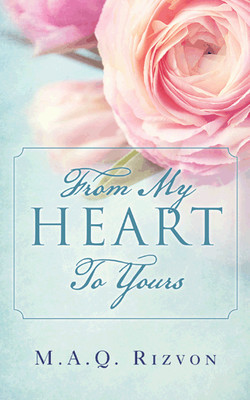The
Comparative Literature department of Jadavpur University played host to author
Judy Fong Bates today and it was both gratifying and heartening for me to be a
part of the audience. That is one good thing about being a student of JU. You
get to meet, and even interact, with writers and poets from both Oriental and
Occidental backgrounds.
The session introduced us to this woman-author who is Chinese
by birth but has been living in Canada and hence her works are primarily
diasporic, like those of Jhumpa Lahiri.
To be quite
honest, I had had a heavy lunch that was having its soporific effect, making it
difficult for me to direct my complete attention to what she was saying. On a
couple of instances, I even dozed off, much to my chagrin and one Miss DDR will
not be a happy person when she reads this.
But good ideas come to people either when they are in their
bathtubs (please refer to Archimedes) or when they are just out of a nap. After
failing to benefit much for the most part of the session (since I was groggy
and also because the voice wasn't loud at the back bench where I was seated), I
redeemed myself somewhat towards the final 5 minutes.
It was
accidental, I would say in my defence, but the idea did fascinate me, and for a
few moments, even I became my own fan. *grins sheepishly*
Hans Robert Jauss' theory of hermeneutics erupted out of me
all of a sudden (wish it had done so during the sem exam) and it struck me that
a diasporic novel can have as many as four categories of readers who will
receive the same piece of work with dissimilar emotions. In Judy's case (whose
protagonist is Chinese living in Canada, like herself), these four kinds of
readers will be:
1. A
Chinese reader living in China and reading the story of a Chinese living in
Canada.
2. A
Chinese reader living in Canada and reading the story of a Chinese living in
Canada.
3. A
Canadian living in Canada (a local) and reading the story of a Chinese living
in Canada, and
4. A
neutral reader, say an Indian living in India and reading the story of a
Chinese living in Canada.
Now,
there is a good and subjective scope to analyse it, and this is where, I
perceive, Jauss' Reception Theory springs into action.
The
1st kind of reader is a Chinese who presumably has never been to Canada. While
reading the text, he will feel for the protagonist who shares his nationality
but finds himself thrown into an alien world where he will be subjected to
racial and cultural discrimination. The reader will undergo multiple emotions.
He will be bemused at times, shocked on occasions, grieved and even disturbed
in certain situations. He will feel the agony of the protagonist since there is
a fraternal connect with him. However, he is an external reader who reads the
story from the outside, knowing that it is not going to happen to him in his
immediate surroundings. So, there is pity but not fear. (Like Ruskin Bond, at
the recently held Kolkata Literary Meet 2015, had described reading a horror
story as an experience of "safe fear"- you are scared for the
protagonist, yet you feel safe, knowing that it is not going to happen to you).
But
for the 2nd kind of reader, the reception of the text will be more personal. He
is a Chinese living in Canada and thus shares the geography and associated
circumstances of the protagonist. He will draw parallels with the journey of
the protagonist and will often squeal, "oh yes, it happened to me
too" or feel a jolt of fear, realizing that it may happen to him some day.
The
3rd kind of a reader is a Canadian and he will try to find himself not in the Chinese
protagonist but in the authoritarian/discriminating/chauvinistic
Canadian. He will either i) be quietly ashamed of the way outsiders are treated
in his country or ii) haughtily agree
with the oppressor instead of pitying the protagonist (in this case, the reader
is what I would call a 'passive racist'), or iii) be indifferent, thereby playing a totally
neutral reader (theoretically possible, though practically less probable).
So,
for the 3rd kind of reader, we actually get three sub-categories, since
individual readers will employ their personal subjectivity to arrive at three
different viewpoints (and emotional response to the text) as expatiated above.
Then
there is the 4th kind of a reader, the only kind that is totally unrelated to
the protagonist and the anti-protagonist in terms of both nationality and
immediate geography. He, therefore, has the liberty of reading the text for the
purpose of pure pleasure and without undergoing the emotional burden of taking
sides. However, complete neutrality is hard to achieve as it necessitates the
reader to be completely isolated from such circumstances and also to employ an
emotionless approach. So, he may get influenced disparately, depending on his
background and cultural roots. For instance, an Indian reader, with a colonial
past, is more likely to empathise with the Chinese protagonist in the book,
while a European reader may not feel pity for the protagonist in the same
degree and may even side with the anti-protagonist.
Coming
back to the seminar at JU, perhaps I didn't frame my question to the best of my
abilities but when I asked Judy as to "her target reader out of these four
types", I couldn't extract out of her the answer I was looking for.
Perhaps, she is herself unaware of the reader she is instinctively targeting
(as she stated) but on my part, the profitable thing that came out of this
session was my deeper understanding of hermeneutics.
-Ritesh Agarwal
Comparative
Literature, Jadavpur University
05/02/2015
